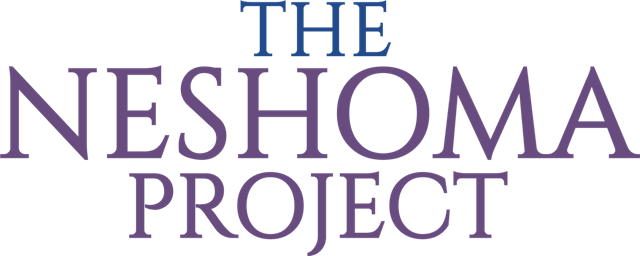FEATURED VIDEOS
Click on the following thumbnails to view a short clip of the person featured. To view someone’s individual page, including the full video conversation, click on the person’s name or LEARN MORE.
Witek Dąbrowski was one of the first rescuers of memory that I met when I first visited Poland in 2005 and he gave me and my parents a tour of Jewish Lublin.
Dariusz Stola is a historian and a professor at the Institute for Political Studies, Polish Academy of Sciences.
Będzin
Piotr and Karolina Jakoweńko discuss how they discovered the Cukerman shtibel; the creation of their organization, Brama Cukermana; how poverty is the best conservator.
“...some people say, 'It’s not part of your legacy.' But at the same time, it is part of my legacy... So I don’t feel uncomfortable about being a non-Jew and working in this environment.”
Agata Radkowska, Lublin, March 4, 2020
“Usually during Christmas we sit all together, the whole family, in one big table...in our history one uncle or one grandfather was missing—in the Jewish history the whole table is empty.”
Dariusz Popiela, Nowy Sącz, February 14, 2020
“I grew up in the seventies and the eighties and I don’t remember my parents ever talking about Jews. I never learned about Jews in school either. It was one of those issues you never talked about.”
Marek Kołcon, Zamość, January 21, 2020
“If we are open to different memories, it already creates a basis for us to understand each other's perspectives and this gives us the opportunity to take the next step, to cooperate and build mutual dialogue.”
Dr. Monika Krzykała, Lublin, January 16, 2020
“I got interested first in Christian-Jewish dialogue—being a Catholic journalist and writer. And later on finally I felt, well, problems in my conscience because I had lived all the time in Otwock not doing anything about the Jewish past of Otwock.”
Zbigniew Nosowski, Otwock, November 15, 2019
“When I started there was no Jewish history in Białowieża. But people remembered. They remembered names, surnames, sometimes even addresses…They could recognize the houses, tell love stories about particular people…This memory is very special… because they tell me things that a child is able to remember.”
Katarzyna Winiarska, Białowieża, April 27, 2019
“So many generations are buried here. And I cannot agree to let these people go unnamed, to go without a mention, without a candle, without a prayer.”
Irenusz Socha, Dębica, April 3, 2019
“I believe that the most important thing here is for people living here to understand that it is also their culture, that Poles and Jews used to live side by side here, that half of the inhabitants were Jewish and half Polish. And they coexisted, cooperated… So, we cannot escape this history. We should cherish it and pass it on to next generations.”
Jerzy Dębiec, Nowy Zmigród, April 2, 2019
“Dukla was a typical, pre-war shtetl, where there were Poles, Jews and Lemkos—all living together in harmony. This multiculturalism was Dukla’s strength. It was the strength of the whole region.”
Jacek Koszczan, Nowy Zmigród, April 2, 2019
“When I started doing this work twenty odd years after the war—not much time had passed since it all happened. And here everything was already gone. Including the memory.”
Adam Bartosz, Tarnów, April 1, 2019
“I felt there was something deeply not right about this situation—that an adult man living in this city doesn’t know anything about the Jews.”
Tomek Pietrasiewicz, Lublin, March 17, 2019
“It’s a crime against memory and, in fact, we are trying to cope with the trauma caused by this crime right now. So it is not only the problem of the Holocaust itself that we have to tackle—meaning to somehow make contemporary people become aware of it—but also this crime against memory.”
Zbigniew Wieciorek, Radom, February 24, 2019
“I couldn’t understand why people who had been here for so long, over eight hundred years, were now doomed to oblivion.”
Rafał Kowalski, Płock, February 22, 2019
“The message is very simple: We need to treat each other as people. We don’t need to treat each other like Jews or non-Jews.”
Dr. Kamila Klausińska, Zdunska Wola, January 26, 2019
“How you can be Christian without knowing that Jesus was a Jew, that his mother was a Jew, that the Apostles were Jews, that those who wrote the New Testament were Jews?”
Stanisław Obirek, Warsaw, January 26, 2019
“I am still working towards saving Jewish memory, because I consider it my duty. I was the mayor of a town which had been built by Jews. It’s my obligation to remember, to respect and to talk about them.”
Jarosław Zatorski, former Mayor of Chmienik
“...so we were walking on ashes [in Bełżec]. I remember this moment quite vividly. That was quite an experience. Maybe a metaphor of living in Poland or Eastern Europe in general, that you walk on graves or, you know, anonymous victims.”
Dr. Dariusz Stola, Warsaw, November 16, 2018
“We live in a time when the Holocaust is not yet history. We think it’s history, and partly it is. But we cannot forget that the Holocaust is still trauma for a lot of people; it’s still trauma—definitely for the survivors, and it’s still trauma for their families.”
Dr. Tomasz Cebulski, Kraków, November 14, 2018
